
With all the hype around supplements and vitamin deficiencies nowadays, you’ve probably stood at least once in the supplement aisle of your local pharmacy wondering, “What supplements should I take?”
For most people vitamin D and magnesium are the two must-have supplements but in this article I am listing down all essential vitamins and minerals that can make a real difference in your life. Whether you’re looking for a boost in energy, help pushing through exercise plateaus, or want to fill nutrition gaps in your diet, I’ll suggest supplements worth incorporating into your diet.
What Supplements Should I Take Daily?
Let’s break down the most popular vitamins and minerals—what they’re used for, the dosage, and more—so you know exactly what to expect.
1. Vitamin D
Vitamin D is often called the “sunshine vitamin” because your body produces it when your skin is exposed to sun rays. This vitamin is important for keeping your bones strong, as it helps your body absorb calcium. Beyond bone health, vitamin D supports your immune system, helps reduce inflammation, and might even play a role in improving your mood [1].
Most people ponder the question, “What vitamins and supplements should I take?” They forget to start with one of the most vital ones in vitamin D. Whether it’s limited sun exposure (thanks, desk jobs!) or diet, a vitamin D deficiency can lead to constant fatigue, weak muscles, or even issues like bone pain. It’s one of those nutrients that doesn’t just keep your body ticking, it keeps you thriving, which is why it’s featured in many types of supplements such as those from VShred.
Recommended Dosage
What vitamin supplements should I take daily for vitamin D? Here’s a quick breakdown:
- Infants (0 to 12 months): 10 mcg (400 IU)
- Children to adults (1 to 70 years): 15 mcg (600 IU)
- Adults 71 or older: 20 mcg (800 IU)
Timing and Food Pairing
Since vitamin D is a fat-soluble vitamin—meaning it can dissolve in oil or fat—it’s best absorbed with meals containing fat. So, taking your vitamin D supplement during a meal with healthy fats—like avocado or nuts—can improve absorption.
Additional Considerations
Here are some other things to keep in mind with vitamin D:
- Supplement forms: Vitamin D supplements come in two forms: D2 (ergocalciferol) and D3 (cholecalciferol). Both are effective, but D3 might raise vitamin D levels more effectively and longer.
- Interactions: Vitamin D can interact with certain medications, like weight-loss drugs and cholesterol-lowering statins. Talk to your doctor before starting this supplement.
- Weight gain: If you’re wondering, “What supplements should I take to lose weight?” Vitamin D may be the answer. Deficiencies in vitamin D have been linked to obesity [2].
Suggested Product: Akasha Naturals Vitamin D 5000 IU

Akasha Naturals’ Vitamin D 5000 IU soft gels deliver a potent dose of vitamin D3 as cholecalciferol, the most bioavailable form, to support bone health and immune function.
On the website, a customer found the product to be great and easy to take. However, another user mentioned that while the product is good, it was a bit difficult to swallow since it’s not in capsule form [3].
2. Vitamin B
Vitamin B is a whole family of essential vitamins, each with its own function. B vitamins are the unsung heroes of daily wellness, from keeping your energy levels up to supporting brain health and red blood cell production.
For example, vitamin B12 is crucial for your nervous system function and DNA synthesis, while B6 helps stabilize your mood and improve immune support [4] [5]. B9 (folate) is especially important for pregnant women [6].
Recommended Dosage
Your dosage depends on what vitamin B you are taking. Let’s take a look at the recommended dosages of popular B vitamins:
- B12: Around 2.4 mcg for adults (slightly higher doses if you’re pregnant or breastfeeding).
- B6: 1.3 to 1.7 mg daily for most adults.
- Folate (B9): 400 mcg for adults; 600 mcg for pregnant women.
Timing and Food Pairings
Vitamin B supplements are water-soluble vitamins, meaning they don’t need fat to be absorbed. For best results, take them in the morning—especially B12, which may give you an energy boost. Pairing them with a meal or snack can help avoid an upset stomach, though.
Additional Considerations
Keep these things in mind when it comes to the use of B vitamin supplements:
- Vegan or vegetarian?: It’s tricky to get your daily minimum of B12 on vegetarian or vegan diets because it’s mostly found in animal products. Supplements or fortified foods are a must for plant-based diets.
- Hypothyroidism side effects: Those who suffer from hypothyroidism often suffer from a vitamin deficiency for B12, and you may be wondering, “What supplements should I take for hypothyroidism?” Adding a supplement may help lessen some of the side effects [7].
- Balanced intake: Many B vitamins are found in multivitamins, but if you have specific health concerns, taking a targeted supplement is a safe bet.
Suggested Product: Akasha Naturals Liquid B Vitamins Complex
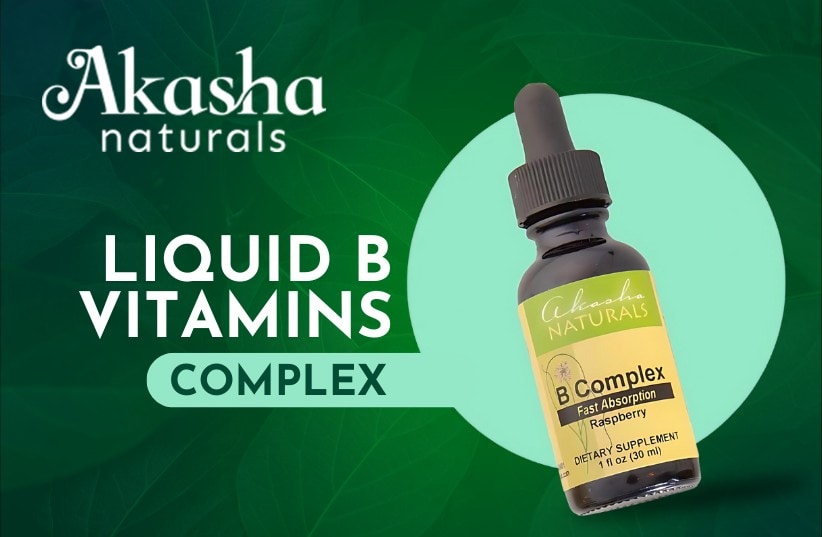
Akasha Naturals’ Liquid B Vitamins Complex blends essential B vitamins to support brain function and boost energy levels. The body absorbs the liquid quickly, which is ideal if you dislike swallowing pills.
Many people have reported increased energy levels and improved mood after incorporating vitamin B complex supplements into daily routines. On Reddit, one user wrote that they like the Vitamin B complex from Akasha Naturals to address their hot flashes [8]. Another user on the website simply stated that they did not care for the vitamin complex [9].
3. Omega-3
Omega-3 fatty acids are often called the “good fats”—they support nearly every system in your body. Their most famous claim to fame is their positive effect on heart health, but studies also show they can help lower triglycerides (the so-called “bad fats”), reduce blood pressure, and decrease the risk of heart disease [10].
Recommended Dosage
There’s no one-size-fits-all dosage for omega-3, but the National Institutes of Health suggests a daily intake between 1.1 and 1.6 grams, with men needing a bit more than women. But these numbers can change depending on your diet—if you’re already eating a lot of fish, then you may not need to supplement at all.
Timing and Food Pairings
Taking Omega-3s with a source of healthy fats, like avocados or olive oil, can improve absorption and effectiveness. On the other hand, using it on an empty stomach may minimize potential digestive upset. In short, the best time to take Omega-3 supplements depends on your preferences and tolerance.
Additional Considerations
- Forms of Omega-3: Omega-3s come in 3 main forms: alpha-linolenic acid or ALA (found in plant oils), eicosapentaenoic acid or EPA, and docosahexaenoic acid or DHA (mostly found in fish oil). ALA is considered essential, but EPA and DHA are linked to health benefits, too.
- Potential interactions: High doses of omega-3 can have a negative interaction with blood-thinning medications, potentially increasing bleeding risk.
- Side effects: Some people may experience minor issues like fishy aftertaste, breath, or gastrointestinal discomfort.
Suggested Product: Akasha Naturals EPA/DHA 720

It contains a blend of omega-3 fatty acids and delivers 720 mg of EPA and DHA per softgel, designed to support heart, brain, and joint health.
On the website, a customer praised the product and used it with their teenage son to help with school focus [11]. However, there are no reviews on third-party platforms like Amazon or Trustpilot, but they have a Trustpilot page with no reviews yet. If you’re thinking about adding it to your routine, it’s wise to explore fitness forums and online communities for personal experiences and insights before making a decision.
4. Magnesium
Magnesium is a multitasking mineral that keeps your body humming—it’s involved in over 300 biochemical reactions, including muscle and nerve function, blood sugar control, and blood pressure regulation [12]. It also contributes to bone health and helps convert food to energy.
Recommended Dosage
Daily magnesium needs vary by age and sex:
- Men (19 to 30): 400 mg; Men (31+): 420 mg
- Women (19 to 30): 310 mg; Women (31+): 320 mg
- Pregnant women: 350 to 360 mg
- Breastfeeding women: 310 to 320 mg
Timing and Food Pairings
You can take magnesium supplements at any time of day; consistency is key. Taking them with food can improve absorption and reduce the chance of an upset stomach. Taking magnesium at night is a good idea if you’re using it as a sleep aid.
Additional Considerations
- Forms of magnesium: Magnesium supplements come in many forms, like magnesium oxide, citrate, and chloride. Some forms, like magnesium citrate, are more easily absorbed.
- Potential interaction: Magnesium can interact with some medications, including antibiotics and diuretics.
- Side effects: High doses of magnesium from supplements can cause diarrhea, nausea, and abdominal cramping. Taking the recommended dosage can help avoid these issues.
- Keto diet starter: You’re probably wondering, “What supplements should I take on keto?” Magnesium is a great choice, along with keto ACV gummies. It may help regulate your potassium and sodium levels, getting you through the “keto flu” stage of the diet.
Suggested Product: BiOptimizers’ Magnesium Breakthrough

BiOptimizers’ Magnesium Breakthrough is a comprehensive blend of 7 magnesium forms specifically designed to reduce stress and improve your sleep quality.
Users have reported experiencing significant benefits from Magnesium Breakthrough. On Amazon, this supplement has a 4.5 out of 5 from almost 10,000 reviews.
On the website, one customer shared their positive experience, noting how skeptical they were at first, but after following the loading protocol, they began to notice a drastic difference in reducing stress after 2 weeks [13].
On the flip side, another customer expressed frustration, as they ended up paying $15 more when purchasing from the official website, and when they called for help, they didn’t get the assistance they expected [14].
5. Iron
Iron is another vital mineral for your body to function properly—it transports oxygen throughout your body through red blood cells [15]. Your body needs to produce energy and cognitive function and maintain a healthy immune system. With iron deficiency, anemia, fatigue, and weakness are all possible side effects.
Recommended Dosage
Like most supplements, dosage depends on age and sex:
- Men aged 19+: 8 mg
- Women aged 19 to 50: 18 mg
- Women over 50: 8 mg
- Pregnant women: 27 mg
Timing and Food Pairing
Your body best absorbs iron on an empty stomach, ideally 1 hour before or 2 hours after meals.
Additional Considerations
- Side effects: Some people have reported gastrointestinal issues, like constipation or nausea.
- Interactions: Iron supplements can interact with medications like antacids and antibiotics.
Suggested Product: Akasha Naturals’ HemaBlend Iron Support
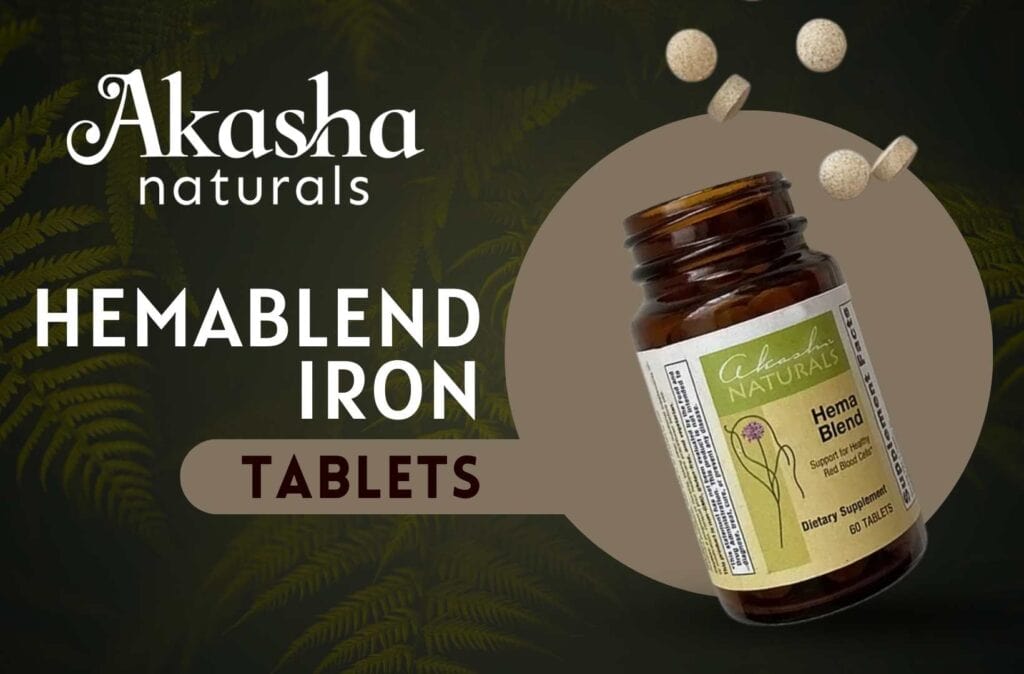
This supplement is a synergistic blend of iron, folic acid, vitamin B12, and other important nutrients designed to maintain and form new healthy red blood cells.
Unfortunately, there aren’t any third-party reviews for HemaBlend, and there are none on the company’s website, either. Check with your doctor or pharmacist, or even ask your friends or family who may have used it.
6. Calcium
Calcium, the “building block” of strong bones, does a ton for your body. It’s another important mineral, this time for muscle contraction and nerve communication, and even helps your blood clot when needed [16]. As you get older, you’ll need more calcium. Over time, if you don’t get enough of it, this can lead to brittle bones, heightening the risk of osteoporosis and fractures.
Recommended Dosage
The following recommendations include food and supplements:
- Adults 19 to 50 years: 1 gram
- Women 51 and older: 1.2 grams
- Men 51 to 70 years: 1 gram
- Men 71 and older: 1.2 grams
- Pregnant and breastfeeding adults: 1 gram
Timing and Food Pairing
The type of calcium supplement you choose will determine what timing and food pairing is best:
- Calcium carbonate: Take with food; the stomach acid produced during eating improves absorption.
- Calcium citrate: You can take this form with or without food.
Additional Considerations
- Interaction: Calcium supplements can interfere with things like antibiotics and blood pressure drugs.
- Side effects: Some people have complained of constipation or gas.
Suggested Product: Ancient Nutrition’s Calcium
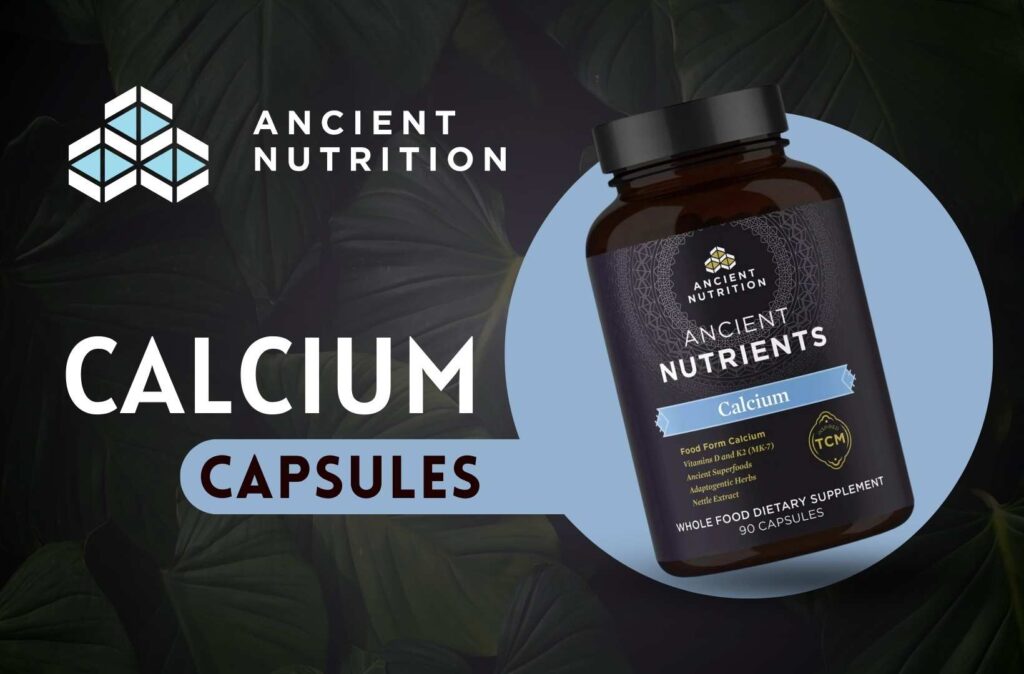
Looking for bone health support? Ancient Nutrition’s Calcium supplement combines ingredients that support bone and muscle health with added superfoods for overall health support.
The supplement has a 4.9-star average from almost 100 reviewers on the company’s website. One customer praised it for being easy on the stomach and easy to swallow compared to other calcium supplements, also appreciating its natural source. However, another customer pointed out that while it’s a quality product, it might not be affordable for everyone [17].
7. Vitamin C
Vitamin C is one of the most versatile vitamins your body needs, and its benefits extend far beyond the common cold. As a powerful antioxidant, it helps neutralize free radicals—unstable molecules that can damage cells and contribute to aging and chronic diseases [18].
One of vitamin C’s standout roles is in collage production. Collagen is the protein responsible for keeping your skin firm, joints flexible, and connective tissues strong. On top of that, the vitamin also improves your immune defense.
Recommended Dosage
The Recommended Daily Allowance (RDA) for vitamin C is:
- Men aged 19+: 90 mg
- Women aged 19+: 75 mg
- Pregnant women: 85 mg
- Breastfeeding women: 120 mg
Timing and Food Pairing
You can take vitamin C supplements at any time of day, with or without food. However, eating is always a good idea when taking supplements because it improves absorption.
Additional Considerations
- Natural sources: To help meet your daily requirements, you can incorporate vitamin C-rich foods like citrus fruits, strawberries, bell peppers, and broccoli into your diet.
- Supplement forms: Vitamin C comes in many different forms, including ascorbic acid, sodium ascorbate, and calcium ascorbate—there’s no significant difference between these forms.
- Carnivore diet: You’re probably wondering, “What supplements should I take on a carnivore diet?” Well, this type of diet may lead to an insufficient amount of essential vitamins, like vitamin C, which is why you need vitamin C supplementation.
Suggested Product: Ancient Nutrition’s Vitamin C + Probiotics
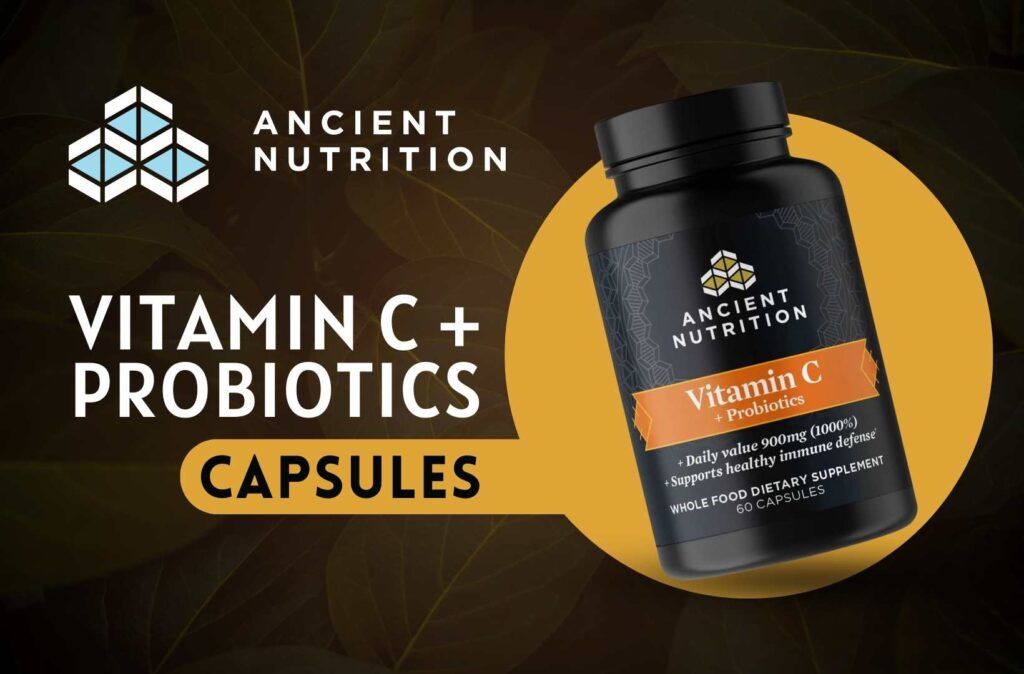
Ancient Nutrition’s Vitamin C + Probiotics is designed to support immune and digestive health. The supplement combines 900 mg of vitamin C with 2 billion CFUs of Bacillus subtilis per serving.
These supplements have quite impressive reviews, earning a 4.9 on the company’s platform. One customer liked the combination of vitamin C with probiotics for immune support, calling it another great product from Ancient Nutrition. However, another customer felt the product didn’t justify its cost and was not happy with their purchase [19].
8. Prenatal Vitamins
During pregnancy, a woman’s nutritional needs increase to support the development of the baby and the health of the mother. Prenatal vitamins provide essential nutrients that may be challenging for expecting mothers to get through a diet alone.
They usually include:
- Folate
- Iron
- Calcium
- Vitamin D
- Iodine
Recommended Dosage
Prenatal vitamins usually have nutrient amounts tailored to meet the increased needs during pregnancy. It’s important to follow the dosage instructions provided by the supplement or your doctor.
Timing and Food Pairing
Taking prenatal vitamins with a meal is important because it can improve absorption and reduce the likelihood of nausea—a common worry during pregnancy.
Additional Considerations
- Dietary sources: While prenatal vitamins help fill nutritional gaps, they should complement a healthy diet rich in fruits, vegetables, whole grains, lean proteins, and dairy products.
- Consult a healthcare professional: Before starting a prenatal vitamin, talk to your doctor about your specific health needs.
Suggested Product: Ancient Nutrition’s Multivitamin Prenatal
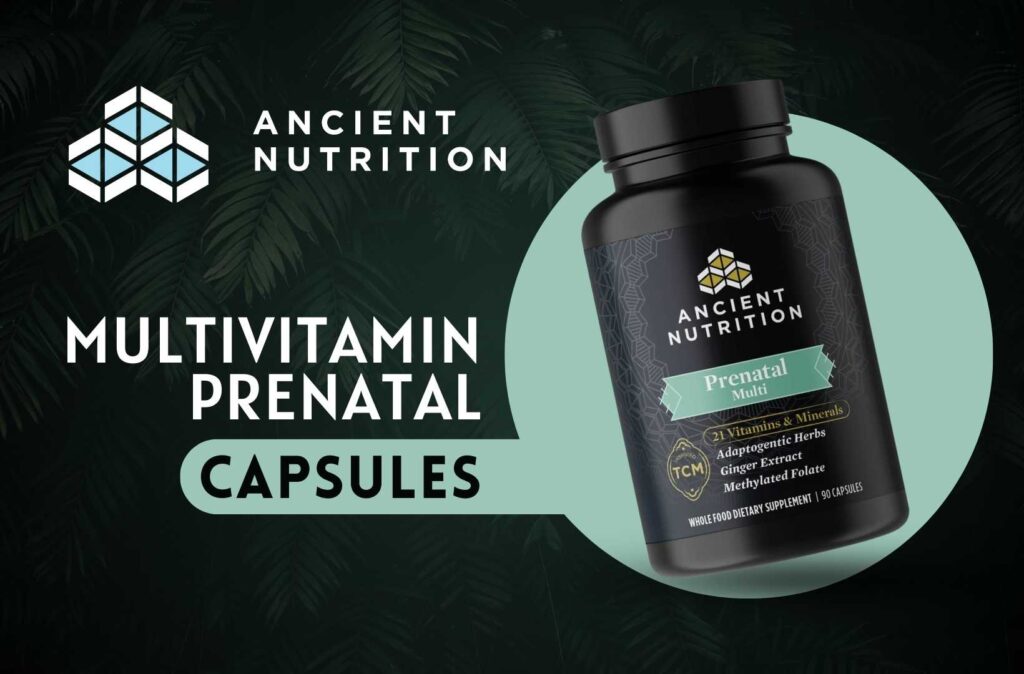
With over 21 vitamins and minerals, including essentials like vitamins C and B12, folate, and magnesium, this supplement supports both the mother and the developing baby during pregnancy.
Expectant mothers love the natural, bioavailable nutrients. On the website, one customer expressed their love for the product, mentioning that they started using it before conception and continued through their pregnancy, now at 28 weeks. Another customer noticed a difference after starting the vitamins but mentioned that the smell was a downside [20].
9. Collagen
As the most abundant protein in your body, collagen acts as the “glue” that holds everything together—skin, bones, muscles, and tendons. As we age, our body’s product of collagen declines, which can lead to wrinkles, joint pain, and weakened connective tissues.
Recommended Dosage
There’s no one-size-fits-all daily dosage for collagen—it all depends on what you’re using it for:
- Skin benefits: 2.5 to 10 g
- Joint health: 10 g
- Muscle mass: 15 g
Timing and Food Pairing
Collagen supplements can be taken at any time of day. Consistency is key, so choose a time that fits your routine.
Additional Considerations
- Types of collagen: There are different types of collagen—Type I, II, III, etc., each playing a unique function. Most supplements have more than one type, so find the product that aligns with your health goals.
- Source: Collagen supplements are derived from several primary sources, including bovine (cow), porcine (pig), marine (fish), and eggshell membranes. Choose a source that suits your needs if you have dietary restrictions or allergies.
- Hydrolyzed collagen: Some supplements use hydrolyzed collagen, which is broken down into smaller peptides for easier absorption. This usually comes in powders or liquids.
Suggested Product: Organifi Collagen Powder
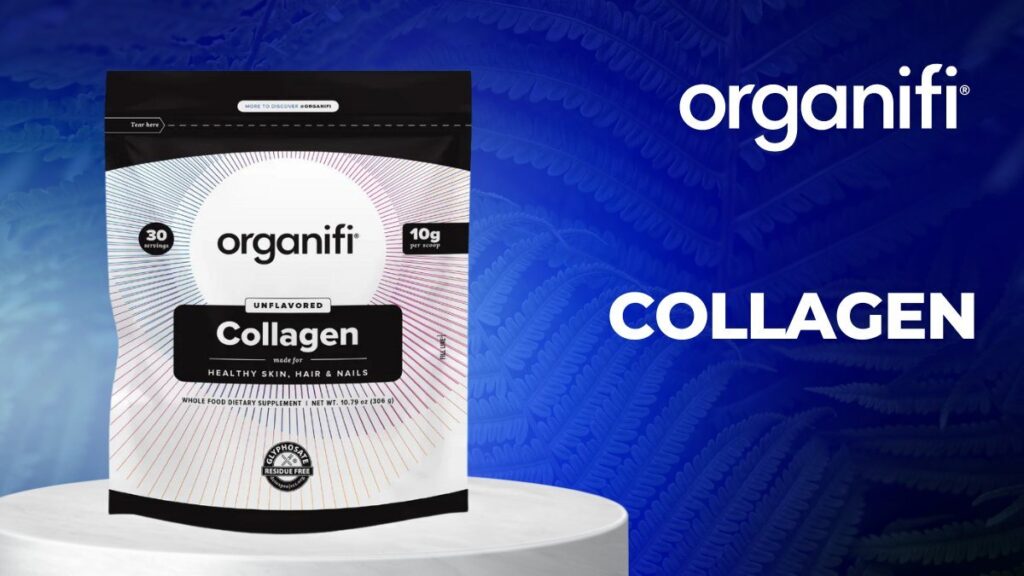
Looking for stronger nails and more vibrant skin? You’ve probably asked your friends, “What supplements should I take for hair growth?” Organifi’s Collagen Powder has 5 collagen types from 4 natural sources; plus, its versatile tasteless powder form means you can mix it in your morning coffee or smoothie or stir it in your yogurt.
Customers mostly agree that this powder is the way to go for hair and nail health. On the website, one customer praised the product, calling it one of the best-quality collagen powders they’ve encountered. They mentioned blending it into their morning matcha for added protein and health benefits.
Another customer, however, said they couldn’t notice a significant improvement in skin and nails but did feel the difference when they stopped using it [21].
10. Melatonin
Melatonin—the “sleep hormone”—plays an important role in regulating your circadian rhythm—the internal clock that tells you when to sleep and wake. Produced naturally by your body in response to darkness, it signals that it’s time to wind down. However, factors like excessive screen time, shift work, or jet lag can mess with its production.
Recommended Dosage
Everyone’s body will respond to dosage differently, so getting the right dosage may be tricky. Start with the lowest possible dose first—0.5 mg per day. If you aren’t getting the rest you want, try bumping it up slowly, up to 5 mg daily.
Timing and Food Pairing
Timing is an obvious one with melatonin; you’ll want to take it 30 minutes up to an hour before your bedtime.
Additional Considerations
- Potential side effects: While melatonin is generally considered safe for short-term use, some people report experiencing headaches, dizziness, nausea, or drowsiness the next day.
- Not a cure-all: Melatonin isn’t a universal remedy for sleep issues. For chronic insomnia, you should address the underlying causes.
Suggested Product: NOW Foods Liquid Melatonin
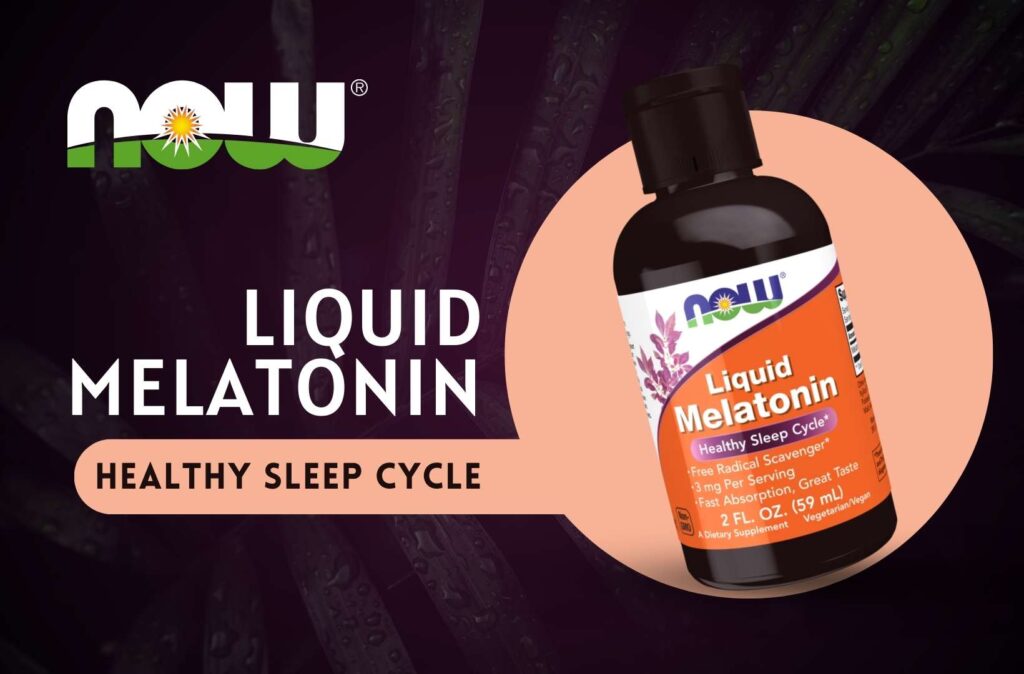
NOW Foods Liquid Melatonin delivers 3 mg of melatonin per serving size in a fast-absorbing liquid form, designed to help you get into healthier sleep cycles and increase REM sleep.
On Amazon, the product has an impressive 4.6 rating and over 1,350 reviews. One customer mentioned that this was their second order, appreciating the double deal and the lack of an aftertaste. They found it effective when used about 20 minutes before bed [22].
Another customer agreed that it helps with sleep and tastes good but noted that the bottle’s size means it doesn’t last long, though they would buy it again [23].
11. CoQ10
Coenzyme, commonly known as CoQ10, is a naturally occurring antioxidant found in every cell in our body. It’s essential for producing energy that fuels cell growth and maintenance, particularly in high-energy organs like the heart, kidney, liver, and pancreas [24].
Recommended Dosage
The most common doses of CoQ10 range from 100 to 200 mg a day. However, the appropriate dosage is specific to your health situation, so talk to your doctor first.
Timing and Food Pairing
CoQ10 is fat-soluble, so it’s best absorbed when taken with meals that contain dietary fats.
Additional Considerations
Consultation: You should speak with your healthcare provider before starting CoQ10 supplementation, especially if you are on medications or have underlying health conditions.
Suggested Product: Health Nutrition’s CoQ10
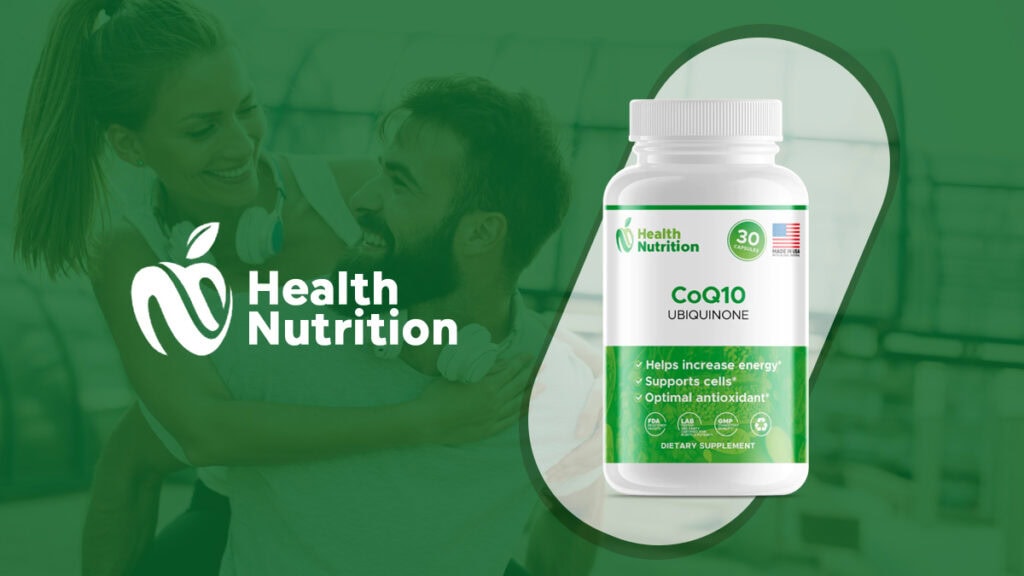
Health Nutrition promises that the supplement optimizes normal energy levels and immunity. It includes 200 mg of CoEnzyme Q10 and is vegan-friendly.
In terms of user feedback, it’s non-existent on the official page. The manufacturer doesn’t have a Trustpilot page. Reddit is also a dead end for both the product and its manufacturer. You may need to find independent reviews online or ask people in your health and wellness community about the product’s efficacy.
12. Probiotics
Our gut biome is home to a complex community of microorganisms, which together are known as your gut microbiome. Maintaining a healthy balance of these microorganisms is crucial for digestion, immune function, and overall health.
Adding probiotics to your daily routine can help restore and maintain the balance of your gut microbiome, especially if you’ve had gastrointestinal illnesses or antibiotic issues.
Recommended Dosage
The dosage depends on the specific strain and the health benefits you’re targeting. Probiotic supplements often list their potency in colony-forming units (CFUs), ranging from 1 billion to 10 billion CFUs per serving. But higher counts don’t necessarily mean greater benefits.
The National Institutes of Health recommends you talk to your healthcare provider about what types of probiotics to choose and how much you need [25].
Timing and Food Pairings
You should take probiotics 30 minutes before a meal, particularly breakfast, to optimize their effectiveness due to lower stomach acid levels. Pairing probiotics with foods like oatmeal, yogurt, or low-fat milk can further enhance their survival and delivery to the gut.
Additional Considerations
- Strain specificity: Different probiotic strains give you different benefits. For example, some strains help better alleviate symptoms of irritable bowel syndrome, while others might support immune health.
- Storage: Some probiotics require refrigeration to keep their potency, while others are shelf-stable.
- Safety: Probiotics are generally safe, but people with compromised immune systems or serious underlying health conditions should talk to a doctor before starting supplementation.
Suggested Product: Oweli Probiotic
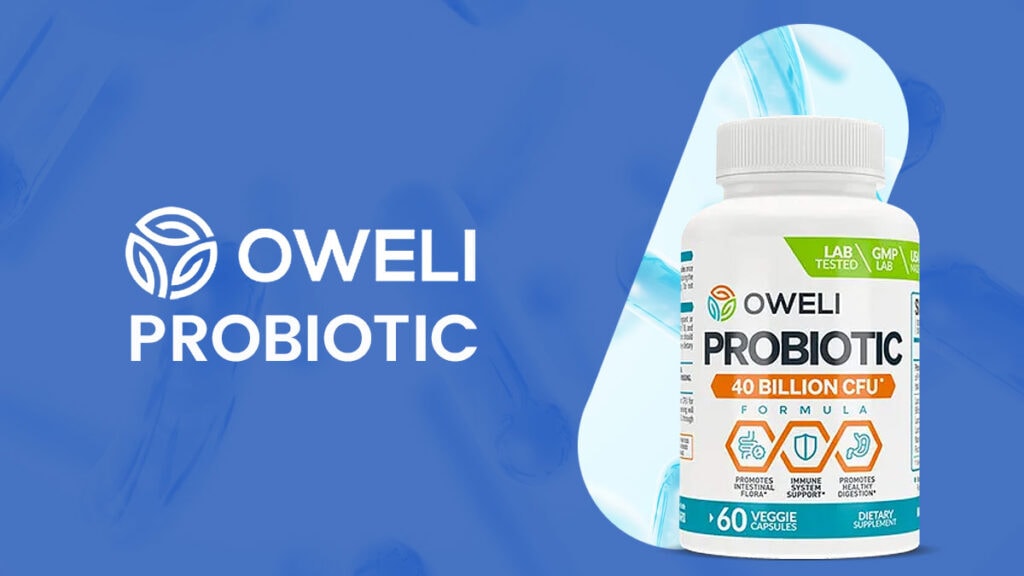
Oweli’s Probiotic supplement is a holistic formula for gut health support, immune response, and better overall wellness. It features 40 billion CFUs of beneficial strains, delivered by MAKtrek Bi-Pass technology, which improves absorption of probiotics in the body.
This supplement’s holistic approach makes it popular among many reviewers. On the website, a customer shared that they use Oweli Probiotic for digestion, especially after consuming red meat, dairy, or alcohol, and find it very effective when taken after a meal [26]. However, another user on Reddit mentioned that the product isn’t widely available and can only be found in a few countries [27].
13. Turmeric
Turmeric is not just a curry spice; it is a golden root with potential health perks that might make it worth adding to your daily lineup. The star element of this spice is curcumin, the main active compound in turmeric, renowned for its anti-inflammatory and antioxidant properties—that means potentially less joint discomfort, respiratory infections, and much more [28].
Recommended Dosage
Most studies use turmeric extracts standardized to include large amounts of curcumin. They suggest starting on the lower end—500 mg daily—and seeing how your body responds [29].
Timing and Food Pairing
Curcumin is fat-soluble, so taking your turmeric supplement with a fatty meal improves absorption.
Additional Considerations
- Bioavailability: Curcumin doesn’t absorb well into the bloodstream on its own. Supplements that include piperine or have formulas designed for better bioavailability are a better choice.
- Possible side effects: Turmeric is generally safe, but in high doses, it may cause gastrointestinal issues like stomach upset or diarrhea.
- Medical interactions: Turmeric can have bad interactions with medications like blood thinners and diabetes medication.
Suggested Product: Ancient Nutrition’s Organic Turmeric
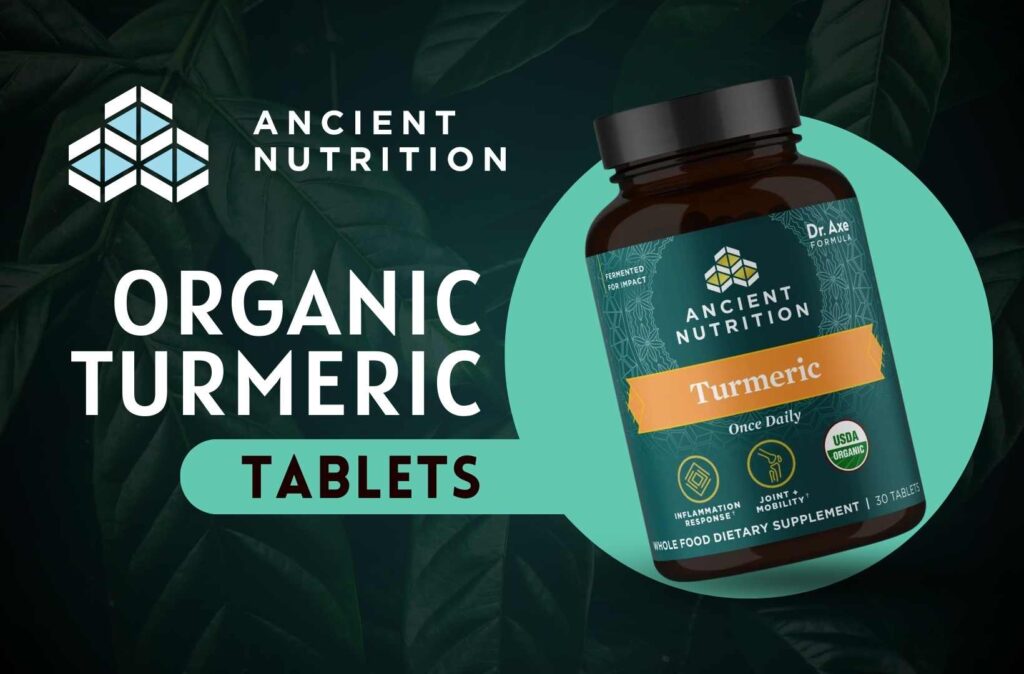
This Turmeric supplement addresses joint health and a healthy inflammatory response. For better absorption, it features organic turmeric root extract, fermented turmeric root, and black pepper fruit. The company has many other high quality supplements on offer, from ashwagandha to colostrum.
With a rating of 4.6/5 on their website, a customer shared that after switching to Ancient Nutrition’s turmeric, they noticed a significant difference compared to other brands they had tried over the years and will be reordering [30]. However, another user on Reddit mentioned that it was good but expensive [31].
Are Supplements Necessary, and How Many Should You Take?
Food is always the ideal starting point for getting your daily nutrients. A well-balanced diet with colorful fruits, vegetables, whole grains, lean proteins, and healthy fats can provide most—if not all—of the essential vitamins and minerals your body craves.
But let’s be real: how often does life allow us to hit all the marks? It’s easy to fall short between busy schedules, picky eating habits, or dietary restrictions.
That’s where supplements come in. They’re like a safety net for the nutritional gaps you might not even realize exist. For example, if you live in a colder climate with little sun exposure, getting enough vitamin D from food alone can feel impossible. Or, if you’re a vegetarian, you might need a B12 boost since it’s primarily found in animal products.
How Many Supplements Should You Be Taking?
The answer isn’t black or white. For some, a daily multivitamin might be plenty—you’ll be covering your bases with one convenient pill. Others may need specific add-ons, like omega-3s for heart health or magnesium to ease muscle tension.
A good rule of thumb is to start small and focus on what’s most relevant to your needs. Ask around internet forums like Reddit’s r/supplements to see what people suggest that have had similar issues, commenting things like, “What supplements should I take for working out?” Your best bet is to talk to your doctor to pinpoint any deficiencies or tailor a plan to your lifestyle.
How to Check If a Supplement Is of Good Quality?
Finding the perfect supplement for your health goals can be frustrating—with so many options, you may not know where to turn. Let’s break down some things you should look out for so you can make smarter, more confident choices.
Look for Chelated Minerals
Not all minerals are easy for your body to absorb. Chelated minerals address this issue by being bound to amino acids, which makes them easier for your body to use.
For example, magnesium glycinate is a chelated form of magnesium—more bioavailable and gentler on the stomach than magnesium oxide.
Ensure Third-Party Testing
Most supplements aren’t regulated by the Food and Drug Administration, as is normally the case with medications, so the label may not always tell the whole truth. Third-party testing is a mark of quality that you should prioritize.
The supplement you’re interested in should have some type of certification from a reliable third party that confirms the ingredients and potency of each batch of the product. If it’s not tested, you shouldn’t trust it.
Avoid Artificial Ingredients
If your supplements read more like a candy wrapper than a health flag, that’s a red flag. Artificial colors, sweeteners, and preservatives can sneak into formulas—and they’re not doing your body any favors.
Avoid Fillers
Fillers are unnecessary extras manufacturers use to bulk up pills and powders. When scanning the ingredients list, shorter is better. If you see an unpronounceable mystery ingredient on the label, search for it and see if it’s necessary to include it.
Consider Supplement Form
Not all supplement forms are equally effective or convenient. Powders, liquids, capsules, pills, chewables, and gummies all have pros and cons. Liquids absorb quickly, while capsules are easier to store and take on the go.
Choose what best fits your routine, and keep an eye on added sugars, especially in gummies.
Avoid Supplements With Extravagant Claims
Do promises of losing 20 pounds in a week or curing all diseases sound familiar? If it’s too good to be true, then it probably is. Legitimate supplements support your health; they don’t perform miracles. Be wary of marketing that over-promises and under-delivers.
Consider Your Needs, Health, and Current Medical Conditions
Your supplement plan should be as unique as you are. If you’re pregnant, iron and folate are especially important. If you’re dealing with joint pain, you might consider glucosamine. Always consider your health goals, lifestyle, or medical conditions.
Talk To Other Users
Sometimes, the best advice comes from people who’ve already tried the product. Reading reviews or joining health-focused forums like r/Supplements can give you real-world insights. Did others experience the benefits you’re after? Were there side effects? Take your time, do some research, and remember—your health is worth the time.
How to Know if a Supplement Is Working Properly
The key to knowing if your new supplement is working is easy—pay attention to how your body feels and responds over time. Most supplements need consistency and patience. Start slowly, introducing one new supplement at a time and giving it a few weeks to see the results. Rushing in with multiple products at the same time will leave you guessing which one is helping.
Let’s look at a few clear signs to watch out for:
Changes in Energy Levels
One of the first signs a supplement is working is a noticeable shift in your energy levels. Maybe you wake up feeling more refreshed, or you’re powering through that post-lunch slump without reaching for that cup of coffee.
On the flip side, if you start feeling jittery or wired after introducing something new, it might mean the dose is too high or that it’s not right for your body.
Bowel Movement Changes
Let’s discuss a topic everyone experiences, but no one likes to discuss with strangers—bowel movements. Your bowel movement changes can say a lot about how your supplements are working (or not). Magnesium, probiotics, and fiber supplements, for example, often help your body’s digestion by regulating bowel movements, easing constipation, or improving overall gut health.
Over-The-Counter Test Kits
Skip the guesswork by using over-the-counter test kits. These can give you hard data to determine if your supplements—or lack thereof—are doing their job. These home tests can measure nutrient levels right from your living room.
The best part? These tests are usually simple, often requiring just a finger prick or saliva sample. While they’re a convenient way to track progress, it’s still smart to start with your doctor’s opinion on your original vitamin and mineral levels to see what supplements you need.
Supplements Are Not Substitutes: The Importance of a Balanced Diet
Supplements are exactly what the name implies: supplemental. They’re not meant to replace whole, natural foods in your diet. Sure, popping a multivitamin might feel like an easy fix, but it’s no substitute for the wide array of nutrients you get from a well-rounded meal.
If you’re serious about getting the specific vitamins and minerals your body needs, you may need to recruit a registered dietitian or follow a weight loss program. They can help you hone in on the specific nutrients you need while giving you meal suggestions for a balanced diet.
Supplements should be your supporting cast, while a diet plays the lead role. A colorful plate packed with green leafy vegetables, fruits, lean proteins, and whole grains delivers more than just individual nutrients—it gives you fiber, antioxidants, and the synergy of compounds working together to fuel your body. Supplements can’t replicate that complexity.
Supplements can bridge the gap if your diet falls short in a specific area, like vegans needing extra B12. However, relying on them while ignoring your diet can lead to problems.
FAQs on Supplements
Outside of answering the main question, “What kind of supplements should I take,” you may have more on your mind. Let’s take a look at the most common questions about supplements.
What Is the Best Supplement To Take Everyday?
The answer to this question is too complex to answer in one sentence. To narrow down the best supplements to take every day, you should ask yourself what your goals are. You’ll want to ask things like, “What supplements should I take to gain muscle,” or “What supplements should I take to lose weight?” if you’re wondering how to lose weight or build muscle. Then, you’ll be able to find the best supplement for your specific needs.
What Supplements Are Actually Worth Taking?
These heavy hitters may be worth your time: vitamin D, omega-3s, magnesium, and probiotics. They’re widely studied and offer benefits most people can use.
How Do I Find Out What Supplements I Need?
Start with a blood test or nutrient panel. A doctor or dietitian can pinpoint any gaps and help you avoid guesswork.
What Are the Top 3 Supplements for Health?
The top 3 supplements for most people are vitamin D for bone and immune health, omega-3s for heart and brain support, and magnesium for sleep, muscle, and stress relief.
What Supplements Should Not Be Taken Daily?
Fat-soluble vitamins like A, E, and K can build up in your system if overdone. Also, iron should only be taken daily if you’re deficient.
What Does Magnesium Do for the Body?
Magnesium has many important functions in your body—it helps with muscle relaxation, sleep, stress, and even heart health.
What Vitamins Should I Take if I’m Always Tired?
B12, vitamin D, and iron are common energy boosters. Try starting with one and seeing how your body responds. Just be careful with iron as it’s better not to start this one before you do a blood test to see if you are deficient.
How Do I Know What Vitamins I Am Lacking?
Monitor your body—fatigue, weak nails, or poor concentration can be clues. A blood test can also confirm what’s missing.
What Vitamins Shouldn’t I Take Together?
An example of vitamins and minerals that shouldn’t be combined is calcium and iron, and zinc and copper. Calcium can block iron absorption, and zinc can interfere with copper. Spread them out to get the best results.
What Supplements Should I Take Daily: Final Thoughts
Yes, finding the right supplements can feel overwhelming, but it doesn’t have to be. Start with real food as your foundation, and think of supplements as tools to fill in the gaps, not shortcuts. Whether you’re boosting energy with B12, supporting your immune system with vitamin D, or giving your gut a little love with probiotics, the key is balance and intention.
 11 Niche Experts
11 Niche Experts
 100+ Product Reviews
100+ Product Reviews
 50+ Tested Products
50+ Tested Products
At BestDaily, our mission is simple: to help you make confident, informed decisions about the products that impact your daily life. Whether you're searching for wellness essentials or lifestyle upgrades, we combine hands-on testing with expert analysis to highlight what truly works.

